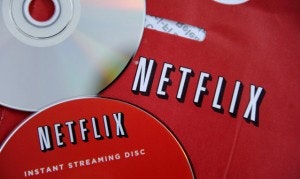It’s barely been two years since the Qwikster debacle, but Netflix, Inc. (NASDAQ:NFLX) might be in the process of making another terrible decision. As of May 1, Netflix subscribers could find that some of their favorite titles are no longer available for streaming.
By allowing various content deals to expire, Netflix has lost the rights to stream nearly 1,800 different titles — and more could be on the way. Netflix CEO Reed Hastings has made it clear that the company wants to move in a different direction.
While that might prove to be the best decision for the company’s long-term future, in the short run, Netflix, Inc. (NASDAQ:NFLX) could end up driving many subscribers away.
Netflix is reinventing itself
Alongside its earnings report in April, Netflix released a letter discussing the company’s strategic vision for the future. (The entire letter can be read here — all investors interested in the company should read it in full.)
Simply put, Netflix wants to change its streaming service. Gone are the days when the company was willing to accept any deal to bolster its available titles — now, Netflix is only interested in exclusive content.

But for what Netflix is planning, 30 million isn’t nearly enough. Hastings believes Netflix can reach 90 million subscribers, and given the amount of money the company has pledged to pay content providers in the future, 90 million may be necessary to make Netflix’s business work.
An Internet HBO
To put it bluntly, Netflix, Inc. (NASDAQ:NFLX) wants to become Time Warner Inc (NYSE:TWX)’s HBO — an HBO that you get through the Internet, not your cable provider. That certainly isn’t a bad business model to replicate, but the transformation could cause some growing pains.
HBO does a few things unbelievably well — when it comes to original shows, no other network compares. Series like The Sopranos, The Wire, and Game of Thrones keep the network’s subscribers loyal — all of whom willingly dish out $10-$20 per month on top of an already expensive cable bill.
As an HBO subscriber myself, I think it’s a great deal for the money. But at the same time, I understand that HBO isn’t really an alternative to Netflix, Inc. (NASDAQ:NFLX).
HBO’s content is great, but it’s limited. HBO produces around 10 original shows per year, and rotates its perhaps two dozen Hollywood movies on a monthly basis. Contrast that with Netflix — it offers literally thousands of movies and TV shows.
In short, while both are a form of entertainment, they satisfy different needs. HBO is a supplement to a cable package; Netflix is a potential alternative.
The Qwikster debacle destroyed shares
At the start of 2010, shares of Netflix were trading near $50. By the summer of 2011, they had reached $300. During the run, a number of investors (such as Whitney Tilson) publicly doubted the stock’s prospects, arguing that shares had run up too aggressively and were poised to fall.

That prediction ultimately came to fruition — by the end of 2011, shares had collapsed by over 80%! What prompted the bursting of that Netflix mini bubble? A boneheaded decision by the company’s management.
In September 2011, Netflix, Inc. (NASDAQ:NFLX) announced that it would split its business in two — Netflix for Internet streaming, Qwikster for DVDs by mail. Those subscribers who wanted both would now be forced to use two different websites and pay two different $8 per month fees — what amounted to a big headache and a 60% price increase.
After experiencing a tremendous public backlash, the company backed off somewhat (ditching Qwikster, yet keeping the price increase) — but only after it had lost almost a million subscribersin the process.

